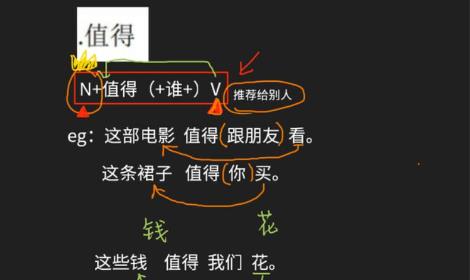为什么中国人似乎不愿意用汉语和我交流?作为一个白人美国人,当我去中国餐馆时,我试着用汉语点餐。我知道他们是中国人,我汉语水平考试5级,并且听到他们与其他中国人交谈。(一)
正文翻译

图

图
评论翻译
Emily Cao
if you are in china, I guess people are trying to make it easy for you live here. if you are in America, there is one possibility that your Chinese isn't fluent enough, so Chinese persons choose to communicate with you in your language. honestly next time you can just tell them “I can speak Chinese, I’d love to speak Chinese here”. no big deal. they’d be happy to speak Chinese.
如果你在中国,我猜人们正试图让你在这里生活得更容易。如果你在美国,有一种可能是你的中文不够流利,所以中国人选择用你的语言和你交流。老实说,下次你可以直接告诉他们“我会说中文,我想在这里说中文”。没什么大不了的。他们会很乐意说中文。
Ruoming Cheng
I am a Chinese .
In our culture, there is a word called “ 待客之道“, which means when people face a person who are “out of culture or circle”, for example, a foreigner, they are supposed to try their best to make the person more comfortable (based on a assumption that the person will feel uncomfortable in a unfamiliar environment). The implementation of English education policy makes most of Chinese people (younger generation) can speak English, so they are able to speak English with you when you try to talk with them.
我是中国人。
在我们的文化中,有一个词叫做“待客之道”,这意味着当人们面对一个“不在文化或圈子里”的人,例如一个外国人时,他们应该尽最大努力让这个人更舒服(基于这个人在陌生的环境中会感到不舒服的假设)。英语教育政策的实施使大多数中国人(年轻一代)都会说英语,所以当你试图与他们交谈时,他们能够与你说英语。
In HK, things are different , because for most people born in HK, their English and Cantonese is much more better than their Mandarin lol, so if you can not speak Cantonese, speaking English will be easier both for you and your Chinese friends.
In Beijing or other inland regions, you can tell them directly that you can speak Chinese before your conversation.
But there is another situation, you meet students, and they just want to practice their oral English.
在香港,情况就不一样了,因为对于大多数出生在香港的人来说,他们的英语和广东话比普通话好得多,所以如果你不会说广东话,说英语对你和你的中国朋友来说都会更容易。
在北京或其他内陆地区,你可以在谈话前直接告诉他们你会说中文。
但还有另一种情况,你遇到学生,他们只是想练习英语口语。
路聪明
emmmmm
I don't know what HSK 5 like.
But based on my experience, they might don't understand u.
My professor really like to speak Mandarin to me after class, but it's really hard for me to understand him, even some simple words.
When he say “cōng míng”, it's like “ Chong mi”.
How can I understand that?!
And my name, “zhū”, he pronounced like “zoo”.
I was like, wait……what?????!!!!!!
So. If u wanna practice, make some Chinese friends.
嗯嗯嗯 我不知道HSK 5是什么样的。 但根据我的经验,他们可能听不懂你说的话。 我的教授课后喜欢跟我说普通话,但对我来说真的很难理解他,甚至一些简单的词汇都不懂。 当他说“聪明”时,听起来像“Chong mi”。 我怎么能理解呢?! 还有我的名字,“朱”,他发音成“zoo”。 我当时就想,等一下……什么?! 所以,如果你想练习,交一些中国朋友吧。
Chuck Pezeshki
There are a couple of reasons that culturally your waiter doesn’t want to talk to you. This has been answered by a couple other posters. The waiter may speak Cantonese, and it is not universal that if you speak Cantonese, you also speak Mandarin.
But the root of this likely goes deeper. While China and Chinese people seem monolithic, they are far from this. Chinese people in the different provinces de-segregate themselves into smaller sub-groups. They all speak different dialects, and as a tonal language, they often don’t understand each other that well. China is a country with 1.2B people, after all.
从文化上讲,你的服务员不想和你说话有几个原因。这已经被其他一些回答者解答过了。服务员可能说粤语,而并非每个说粤语的人都同时会说普通话。 但这背后的根本原因可能更深层次一些。虽然中国和中国人似乎是单一的整体,但实际上并非如此。中国各个省份的人们会将自己分成更小的亚群体。他们都说着不同的方言,而作为一种声调语言,他们之间经常彼此理解起来并不那么容易。毕竟中国是一个有12亿人口的国家。
Diving even deeper, China is also (as I’ve commented before) a low empathy culture. What that translates to is much more profound in-group/out-group subdivisions, especially when someone is obviously different. As a 54 year old white guy, while I’ve always been treated well by most Chinese, there’s also no question that I’m in the out-group. Chinese have an extremely refined sense of hospitality that is implicit in the culture, so noticing that you are in the out-group doesn’t mean that you are going to be mistreated. In fact, as a white person, the odds are that you will be treated much better than Chinese people treat each other!
更深入地说,中国也是一个低同理心的文化(正如我之前所评论的)。这意味着在群内和群外的细分更加深刻,尤其是当某人明显不同的时候。作为一个54岁的白人男性,虽然我一直受到大多数中国人的善待,但毫无疑问,我处于群外。中国人有一种非常精致的好客意识,这在文化中是隐含的,所以注意到你处于群外,并不意味着你会受到虐待。事实上,作为一个白人,你被对待得比中国人彼此之间要好得多!
But that does not extend to language. They look at you, and most simply cannot process at first glance that you would speak their language. You are DIFFERENT, and different people do not speak Chinese. It’s not like going to Mexico, and speaking bad Spanish.
但这并不适用于语言。他们看着你,大多数人一开始无法理解你能说他们的语言。你是“不同”的,而不同的人不会说中文。这不像去墨西哥说糟糕的西班牙语那样简单。
There are ways to get around this, and interestingly enough, the simplest route is laughter. My Chinese name is Giant Panda (大熊猫), and when asked my name, I use the Chinese. What then happens is VERY predictable, and hilarious. The Chinese person will start repeating my name over and over again, believing that it is actually some English name. After about three times, though, inevitably (if on the mainland) they will say what amounts to their national slogan: ‘Panda is National Treasure!’ (国宝!) Upon realizing they’ve just called this 54 year old white dude their national treasure. Laughter erupts, they realize that I speak mediocre Chinese, and then I find that they humor my attempts. And I make a friend.
有方法可以克服这个问题,有趣的是,最简单的方法就是笑声。我的中文名字是大熊猫,当被问及我的名字时,我使用中文回答。接下来发生的事情非常可预测,也非常滑稽。中国人会一遍又一遍地重复我的名字,认为这实际上是一个英文名字。然而,在大约第三次后,不可避免地(如果在中国内地),他们会说出相当于他们的国家口号:“熊猫是国宝!”(国宝!)一旦意识到他们刚刚称呼这个54岁的白人哥们为国宝,大家都会发笑,他们意识到我会说一般水平的中文,然后我发现他们幽默我试图交流的努力。然后我们成了朋友!
Da Qi
1. HSK5 is an awesome achievement for a white American, but vocabulary wise it is about equivalent to a 3rd or 4th grader in Chinese elementary school. That means, your Chinese may not be as good as you thought.
2. Not all people in Chinese restaurants speak Chinese, or at least not the same Chinese. Once my American friend had me taught him say “thank you” in Chinese and tried to impress the waitress. He awkwardly found out the waitress could not understand him coz she did not speak the language.
3. Some people in Chinese restaurants are weird. I have met waiters insist talking to me in English and it was far from fluent. Maybe he just wanted to practice English and try to be “professional”.
1. HSK5对于一个美国白人来说是一个了不起的成就,但在词汇方面,它大约相当于中国小学三到四年级的水平。这意味着你的中文可能没有你想象中好。
2. 并非所有在中餐馆工作的人都会说中文,或者至少不是同样的中文。我有一次我的美国朋友让我教他如何用中文说“谢谢”,然后试图给服务员留下深刻印象。结果尴尬地发现服务员听不懂他,因为她不会说那种语言。
3. 在中餐馆里有些人很奇怪。我曾经遇到过一些服务员坚持用英语与我交谈,但英语并不流利。也许他只是想练习英语,并试图显得“专业”。
Raffi Roupen
note: the original poster upxed his information, so now it doesn’t seem that his Chinese is as bad as I originally understood based on his original question. Now he’s stated he’s an HSK level 5 who has travelled to China numerous times.
Which makes me wonder why he feels the need to look for language practice with people at work in Chinese restaurants (as opposed to an exchange student or someone looking for language exchange)… but the majority of my post still stands — not everyone working at a Chinese restaurants speaks Chinese, nor do they have any obligation to provide free language practice to any customer who wants to practice with you.
注意:原始发帖者更新了他的信息,所以现在看起来他的中文水平并不像我最初根据他的问题理解的那样糟糕。他现在表示自己是一个已经多次去过中国的HSK5级别的人。
这让我想知道,为什么他感觉有必要在中餐馆里寻找语言练习的机会(而不是与留学生或寻找语言交流的人交流)... 但是,我大部分的回答仍然成立——并非在中餐馆工作的每个人都会说中文,他们也没有义务为任何想要与他们练习语言的顾客提供免费的语言实践。
Original answer:
If I had to guess, based on the limited information given, your Chinese is either very poor, and/or the wait staff has very good English and they feel more comfortable speaking to you in English. (And maybe you are trying to order in Mandarin in a Cantonese restaurant… which very well may get you strange glares).
原始回答: 如果我必须根据有限的信息猜测的话,你的中文可能非常糟糕,或者服务员的英文非常好,他们更愿意用英文与你交谈。 (也许你试图在粤菜馆里用普通话点菜...这很可能会引来奇怪的眼神)。
Based on on my first hand experience in the US as a white person studying Chinese, generally in a non-Cantonese restaurant (ie Taiwanese or northern china cuisine place) they would be more than happy to humor your attempts at ordering in Chinese. It's even welcomed by some staff who maybe don't have the best English and are tired of dealing with foreigners ordering in English most of the time. They will probably at least appreciate the effort. But that was the SF Bay Area. It may be different where ever you are located.
根据我在美国作为一个白人学习中文的亲身经历,通常在一个非粤菜馆(例如台湾或中国北方菜馆),他们会很愿意纵容你用中文尝试点菜。一些员工甚至会欢迎这种尝试,因为他们可能英文不太好,而且厌倦了大部分时间都与说英语的外国人打交道。他们可能会至少欣赏你的努力。但那是在旧金山湾区的情况,你所在的地方可能不同。
I think it's also very important to pay attention to who you are speaking to too. Not everyone who works at a Chinese restaurant is actually speaks Chinese or is even ethnically Chinese. if the waiter is an ABC they may actually be offended or annoyed that you are assuming they speak anything other than English based on where they work or how they look.
Thought experiment - go to an Italian restaurant and try ordering in Italian. It will work sometimes but definitely not every time. You probably will get some strange looks too.
我认为还非常重要的一点是注意你与谁交谈。并不是每个在中餐馆工作的人都会说中文,甚至不一定是华人。如果服务员是美籍华人,你假设他们会说除了英语之外的其他语言,基于他们的工作地点或外貌,可能会冒犯到他们或让他们感到恼火。 思想实验——去意大利餐厅尝试用意大利语点菜,有时会成功,但肯定不是每次都可以。你可能也会看到一些奇怪的眼神。
Anyway there is one easy solution to your problem - go to a place where no one (or almost no one) speaks English (Chinatown or a Chinese strip mall if there is one in your area). Suddenly your Chinese language skills become more useful for everyone.
Better yet - Go to China or Taiwan. Almost no restaurant staff outside of fancy hotels and tourist spots will speak any English. Your Chinese will improve quickly.
无论如何,你的问题有一个简单的解决办法——去一个没有人(或几乎没有人)说英语的地方(如果你所在的地区有唐人街或中国商场)。突然间,你的中文语言技能对所有人来说都更有用。
更好的办法是去中国或台湾地区。除了高档酒店和旅游景点以外,几乎没有餐厅员工会说英语。你的中文会迅速提高。
Tait Lawton
I think the current top answer shows the problem perfectly.
Even though the OP has stated he’s good at Chinese, and cited evidence that he does, the current top answer says “there is one possibility that your Chinese isn't fluent enough”. And this answer was voted up by 17 people, most of whom have Chinese names.
The problem is that many Chinese people will assume a white person cannot possibly speak Chinese very well, even when shown some evidence to the contrary.
It’s possible to change their opinion, but not with such a short conversation.
This isn’t the only possible answer, but it’s the most likely in my opinion. I have experienced situations like this hundreds of times at least.
我认为当前的最佳回答完美地展示了这个问题。尽管原帖作者表示他的中文很好,并提供了他确实擅长中文的证据,但当前的最佳回答却说“有一种可能是你的中文不够流利”。而且这个回答得到了17位用户的赞同,其中大多数人都有中国的名字。
问题在于很多中国人会默认一个白人不可能很好地说中文,即使给出了一些相反的证据也是如此。要改变他们的看法是可能的,但这个短暂的对话不足以做到这一点。
这并不是唯一可能的答案,但在我看来,这是最有可能的情况。至少我已经经历过无数次这样的情况。
Bian Li
From my experience, it’s because they just simply aren’t accustomed to speaking Chinese with a non-Chinese, so it doesn’t even occur to them that they should speak Chinese with you.
Assuming you are as good at Chinese (Mandarin) as you say you are and your tonal pronunciation is on point so they can understand you easily, why don’t you ask them to speak Chinese to you? I’ve often found that people are willing to speak in their native language if you are the one to offer. Usually they don’t want to assume that you speak it. This is of course predicated on the fact that they also speak Mandarin. Lots of Chinese restaurants are run by non-native Mandarin speakers, such as Fujianese, Cantonese, etc. Their dialects are totally different and their Mandarin might not be so great anyways.
根据我的经验,他们只是不习惯与非中国人说中文,所以根本没有想到应该用中文与你交流。假设你的中文(普通话)确实像你所说的那样好,并且你的声调发音准确,对方可以轻松地听懂你,为什么不请他们用中文与你交谈呢?我经常发现,如果你主动提出,人们通常愿意用自己的母语交流。他们通常不想假设你会说中文。当然,前提是他们也能说普通话。许多中国餐馆都是由非母语普通话的人经营,比如福建人、广东人等。他们的方言完全不同,而且他们的普通话可能也不太好。
I’m fluent in Spanish, but I certainly don’t look it. When I lived in Spain, my Spanish classmates always forgot that I could speak Spanish and would speak English to me as a default. I always had to remind them that I can understand perfectly so they can speak to me in their native language if that was easier. They would tell me it was so easy to forget since I didn’t look like I spoke it.
我流利地说西班牙语,但我显然不像是会说的人。当我住在西班牙时,我的西班牙同学总是忘记我会说西班牙语,以英语作为默认语言与我交谈。我总是不得不提醒他们我可以完全理解,所以他们可以用他们的母语与我交谈,如果这样更容易的话。他们告诉我很容易忘记,因为我看起来不像会说西班牙语的人。
When I travel in Latin America, or go to the Mexican supermarkets or restaurants back home (I live in the US), it’s a similar situation.
I often ask why, and the answer is always the same: It’s so beyond their realm of exposure that they don’t even think to speak their native language with someone who doesn’t look like them.
当我在拉丁美洲旅行,或者在美国(我住在美国)去墨西哥超市或餐馆时,情况也类似。
我经常问为什么,答案总是相同的:这太超出他们的认知范围,以至于他们甚至不会想到与一个看起来不像他们的人说自己的母语。
Half the time, they’ll stare back incredulously with disbelief, and you can see the gears in their head trying to process that a Chinese-American girl can speak Spanish with a Mexican accent. Then it still doesn’t process, so they continue to speak back in broken English. I then let them know that they can feel free to speak Spanish if they want, and then they’re happy.
有一半的时间,他们会带着怀疑的目光盯着你,难以置信地看着你,他们的大脑正试图理解一个华裔女孩可以带着墨西哥口音说西班牙语。然后,他们还是不理解,继续用蹩脚的英语回答。然后我会告诉他们,如果他们愿意,可以放心地用西班牙语交流,然后他们就高兴了
Half the time, they’ll smile and be relieved that they can speak in their native language, then compliment you on how well you speak it. I’ve found this often breaks the ice as they’ll proceed to ask a ton of questions of how and where you learned it.
另一半的时间,他们会微笑并松了口气,因为他们可以用自己的母语交谈,并赞扬你的口语流利。我发现这常常打破了僵局,他们随后会开始问很多关于你学习语言的问题。
Junhong Liang
I am a Chinese who is attending college in Beijing. One day I met a foreigner in a restaurant, the restaurant was crowded and there was only one empty seat on the opposite of him.
I approached and said in Chinese: 我可以坐在这里吗? (Can I take a seat there?)
He looked at me, it seemed he did not understand my words.
So I asked the same question in English, then in a moment, he got my meaning, nodded his head, and I took the seat.
我是一个在北京上大学的中国人。有一天在一家餐馆里,餐厅很拥挤,只有他对面的一个空位。 我走过去用中文说:“我可以坐在这里吗?” 他看着我,似乎不理解我的话。 所以我用英语问了同样的问题,然后他立刻明白了我的意思,点了点头,我就坐下了。
Later during the dinner, we chatted happily in English. He always asked me to tell him how to say this or that in Chinese, however, his Chinese is not so good. I have to use English to explain my Chinese words to him, therefore he knew what I was talking about. He is a Spanish and a postdoc in astrophysics!!!
后来在吃饭的时候,我们用英语愉快地聊天。他经常请教我如何用中文表达这个或那个词,但他的中文水平并不是很好。我不得不用英语解释我的中文词语,这样他就知道我在说什么了。他是一个西班牙人,是一名天体物理学的博士后!!!
So, for many Chinese people, the Chinese level of foreigners is not enough to communicate freely. Although you obtained HSK5, that does not mean that you can chat with native Chinese speakers at ease. As for me, when I was busy, I won’t use Chinese to explain something to foreigners because it would be a waste of time. English is more direct and both sides could understand more easily.
If you want someone to talk with you in Chinese, you could practice your skills and speak with someone who doesn't know English at all. It would be a lot of fun.
所以,对于很多中国人来说,外国人的中文水平还不足以自由交流。虽然你获得了HSK5级,但这并不意味着你可以轻松地与中文母语人士聊天。至于我,当我很忙的时候,我不会用中文向外国人解释一些东西,因为那会浪费时间。英语更直接,双方更容易理解。
如果您希望有人用中文与您交谈,您可以练习您的技能并与根本不懂英语的人交谈。这会很有趣。
if you are in china, I guess people are trying to make it easy for you live here. if you are in America, there is one possibility that your Chinese isn't fluent enough, so Chinese persons choose to communicate with you in your language. honestly next time you can just tell them “I can speak Chinese, I’d love to speak Chinese here”. no big deal. they’d be happy to speak Chinese.
如果你在中国,我猜人们正试图让你在这里生活得更容易。如果你在美国,有一种可能是你的中文不够流利,所以中国人选择用你的语言和你交流。老实说,下次你可以直接告诉他们“我会说中文,我想在这里说中文”。没什么大不了的。他们会很乐意说中文。
Ruoming Cheng
I am a Chinese .
In our culture, there is a word called “ 待客之道“, which means when people face a person who are “out of culture or circle”, for example, a foreigner, they are supposed to try their best to make the person more comfortable (based on a assumption that the person will feel uncomfortable in a unfamiliar environment). The implementation of English education policy makes most of Chinese people (younger generation) can speak English, so they are able to speak English with you when you try to talk with them.
我是中国人。
在我们的文化中,有一个词叫做“待客之道”,这意味着当人们面对一个“不在文化或圈子里”的人,例如一个外国人时,他们应该尽最大努力让这个人更舒服(基于这个人在陌生的环境中会感到不舒服的假设)。英语教育政策的实施使大多数中国人(年轻一代)都会说英语,所以当你试图与他们交谈时,他们能够与你说英语。
In HK, things are different , because for most people born in HK, their English and Cantonese is much more better than their Mandarin lol, so if you can not speak Cantonese, speaking English will be easier both for you and your Chinese friends.
In Beijing or other inland regions, you can tell them directly that you can speak Chinese before your conversation.
But there is another situation, you meet students, and they just want to practice their oral English.
在香港,情况就不一样了,因为对于大多数出生在香港的人来说,他们的英语和广东话比普通话好得多,所以如果你不会说广东话,说英语对你和你的中国朋友来说都会更容易。
在北京或其他内陆地区,你可以在谈话前直接告诉他们你会说中文。
但还有另一种情况,你遇到学生,他们只是想练习英语口语。
路聪明
emmmmm
I don't know what HSK 5 like.
But based on my experience, they might don't understand u.
My professor really like to speak Mandarin to me after class, but it's really hard for me to understand him, even some simple words.
When he say “cōng míng”, it's like “ Chong mi”.
How can I understand that?!
And my name, “zhū”, he pronounced like “zoo”.
I was like, wait……what?????!!!!!!
So. If u wanna practice, make some Chinese friends.
嗯嗯嗯 我不知道HSK 5是什么样的。 但根据我的经验,他们可能听不懂你说的话。 我的教授课后喜欢跟我说普通话,但对我来说真的很难理解他,甚至一些简单的词汇都不懂。 当他说“聪明”时,听起来像“Chong mi”。 我怎么能理解呢?! 还有我的名字,“朱”,他发音成“zoo”。 我当时就想,等一下……什么?! 所以,如果你想练习,交一些中国朋友吧。
Chuck Pezeshki
There are a couple of reasons that culturally your waiter doesn’t want to talk to you. This has been answered by a couple other posters. The waiter may speak Cantonese, and it is not universal that if you speak Cantonese, you also speak Mandarin.
But the root of this likely goes deeper. While China and Chinese people seem monolithic, they are far from this. Chinese people in the different provinces de-segregate themselves into smaller sub-groups. They all speak different dialects, and as a tonal language, they often don’t understand each other that well. China is a country with 1.2B people, after all.
从文化上讲,你的服务员不想和你说话有几个原因。这已经被其他一些回答者解答过了。服务员可能说粤语,而并非每个说粤语的人都同时会说普通话。 但这背后的根本原因可能更深层次一些。虽然中国和中国人似乎是单一的整体,但实际上并非如此。中国各个省份的人们会将自己分成更小的亚群体。他们都说着不同的方言,而作为一种声调语言,他们之间经常彼此理解起来并不那么容易。毕竟中国是一个有12亿人口的国家。
Diving even deeper, China is also (as I’ve commented before) a low empathy culture. What that translates to is much more profound in-group/out-group subdivisions, especially when someone is obviously different. As a 54 year old white guy, while I’ve always been treated well by most Chinese, there’s also no question that I’m in the out-group. Chinese have an extremely refined sense of hospitality that is implicit in the culture, so noticing that you are in the out-group doesn’t mean that you are going to be mistreated. In fact, as a white person, the odds are that you will be treated much better than Chinese people treat each other!
更深入地说,中国也是一个低同理心的文化(正如我之前所评论的)。这意味着在群内和群外的细分更加深刻,尤其是当某人明显不同的时候。作为一个54岁的白人男性,虽然我一直受到大多数中国人的善待,但毫无疑问,我处于群外。中国人有一种非常精致的好客意识,这在文化中是隐含的,所以注意到你处于群外,并不意味着你会受到虐待。事实上,作为一个白人,你被对待得比中国人彼此之间要好得多!
But that does not extend to language. They look at you, and most simply cannot process at first glance that you would speak their language. You are DIFFERENT, and different people do not speak Chinese. It’s not like going to Mexico, and speaking bad Spanish.
但这并不适用于语言。他们看着你,大多数人一开始无法理解你能说他们的语言。你是“不同”的,而不同的人不会说中文。这不像去墨西哥说糟糕的西班牙语那样简单。
There are ways to get around this, and interestingly enough, the simplest route is laughter. My Chinese name is Giant Panda (大熊猫), and when asked my name, I use the Chinese. What then happens is VERY predictable, and hilarious. The Chinese person will start repeating my name over and over again, believing that it is actually some English name. After about three times, though, inevitably (if on the mainland) they will say what amounts to their national slogan: ‘Panda is National Treasure!’ (国宝!) Upon realizing they’ve just called this 54 year old white dude their national treasure. Laughter erupts, they realize that I speak mediocre Chinese, and then I find that they humor my attempts. And I make a friend.
有方法可以克服这个问题,有趣的是,最简单的方法就是笑声。我的中文名字是大熊猫,当被问及我的名字时,我使用中文回答。接下来发生的事情非常可预测,也非常滑稽。中国人会一遍又一遍地重复我的名字,认为这实际上是一个英文名字。然而,在大约第三次后,不可避免地(如果在中国内地),他们会说出相当于他们的国家口号:“熊猫是国宝!”(国宝!)一旦意识到他们刚刚称呼这个54岁的白人哥们为国宝,大家都会发笑,他们意识到我会说一般水平的中文,然后我发现他们幽默我试图交流的努力。然后我们成了朋友!
Da Qi
1. HSK5 is an awesome achievement for a white American, but vocabulary wise it is about equivalent to a 3rd or 4th grader in Chinese elementary school. That means, your Chinese may not be as good as you thought.
2. Not all people in Chinese restaurants speak Chinese, or at least not the same Chinese. Once my American friend had me taught him say “thank you” in Chinese and tried to impress the waitress. He awkwardly found out the waitress could not understand him coz she did not speak the language.
3. Some people in Chinese restaurants are weird. I have met waiters insist talking to me in English and it was far from fluent. Maybe he just wanted to practice English and try to be “professional”.
1. HSK5对于一个美国白人来说是一个了不起的成就,但在词汇方面,它大约相当于中国小学三到四年级的水平。这意味着你的中文可能没有你想象中好。
2. 并非所有在中餐馆工作的人都会说中文,或者至少不是同样的中文。我有一次我的美国朋友让我教他如何用中文说“谢谢”,然后试图给服务员留下深刻印象。结果尴尬地发现服务员听不懂他,因为她不会说那种语言。
3. 在中餐馆里有些人很奇怪。我曾经遇到过一些服务员坚持用英语与我交谈,但英语并不流利。也许他只是想练习英语,并试图显得“专业”。
Raffi Roupen
note: the original poster upxed his information, so now it doesn’t seem that his Chinese is as bad as I originally understood based on his original question. Now he’s stated he’s an HSK level 5 who has travelled to China numerous times.
Which makes me wonder why he feels the need to look for language practice with people at work in Chinese restaurants (as opposed to an exchange student or someone looking for language exchange)… but the majority of my post still stands — not everyone working at a Chinese restaurants speaks Chinese, nor do they have any obligation to provide free language practice to any customer who wants to practice with you.
注意:原始发帖者更新了他的信息,所以现在看起来他的中文水平并不像我最初根据他的问题理解的那样糟糕。他现在表示自己是一个已经多次去过中国的HSK5级别的人。
这让我想知道,为什么他感觉有必要在中餐馆里寻找语言练习的机会(而不是与留学生或寻找语言交流的人交流)... 但是,我大部分的回答仍然成立——并非在中餐馆工作的每个人都会说中文,他们也没有义务为任何想要与他们练习语言的顾客提供免费的语言实践。
Original answer:
If I had to guess, based on the limited information given, your Chinese is either very poor, and/or the wait staff has very good English and they feel more comfortable speaking to you in English. (And maybe you are trying to order in Mandarin in a Cantonese restaurant… which very well may get you strange glares).
原始回答: 如果我必须根据有限的信息猜测的话,你的中文可能非常糟糕,或者服务员的英文非常好,他们更愿意用英文与你交谈。 (也许你试图在粤菜馆里用普通话点菜...这很可能会引来奇怪的眼神)。
Based on on my first hand experience in the US as a white person studying Chinese, generally in a non-Cantonese restaurant (ie Taiwanese or northern china cuisine place) they would be more than happy to humor your attempts at ordering in Chinese. It's even welcomed by some staff who maybe don't have the best English and are tired of dealing with foreigners ordering in English most of the time. They will probably at least appreciate the effort. But that was the SF Bay Area. It may be different where ever you are located.
根据我在美国作为一个白人学习中文的亲身经历,通常在一个非粤菜馆(例如台湾或中国北方菜馆),他们会很愿意纵容你用中文尝试点菜。一些员工甚至会欢迎这种尝试,因为他们可能英文不太好,而且厌倦了大部分时间都与说英语的外国人打交道。他们可能会至少欣赏你的努力。但那是在旧金山湾区的情况,你所在的地方可能不同。
I think it's also very important to pay attention to who you are speaking to too. Not everyone who works at a Chinese restaurant is actually speaks Chinese or is even ethnically Chinese. if the waiter is an ABC they may actually be offended or annoyed that you are assuming they speak anything other than English based on where they work or how they look.
Thought experiment - go to an Italian restaurant and try ordering in Italian. It will work sometimes but definitely not every time. You probably will get some strange looks too.
我认为还非常重要的一点是注意你与谁交谈。并不是每个在中餐馆工作的人都会说中文,甚至不一定是华人。如果服务员是美籍华人,你假设他们会说除了英语之外的其他语言,基于他们的工作地点或外貌,可能会冒犯到他们或让他们感到恼火。 思想实验——去意大利餐厅尝试用意大利语点菜,有时会成功,但肯定不是每次都可以。你可能也会看到一些奇怪的眼神。
Anyway there is one easy solution to your problem - go to a place where no one (or almost no one) speaks English (Chinatown or a Chinese strip mall if there is one in your area). Suddenly your Chinese language skills become more useful for everyone.
Better yet - Go to China or Taiwan. Almost no restaurant staff outside of fancy hotels and tourist spots will speak any English. Your Chinese will improve quickly.
无论如何,你的问题有一个简单的解决办法——去一个没有人(或几乎没有人)说英语的地方(如果你所在的地区有唐人街或中国商场)。突然间,你的中文语言技能对所有人来说都更有用。
更好的办法是去中国或台湾地区。除了高档酒店和旅游景点以外,几乎没有餐厅员工会说英语。你的中文会迅速提高。
Tait Lawton
I think the current top answer shows the problem perfectly.
Even though the OP has stated he’s good at Chinese, and cited evidence that he does, the current top answer says “there is one possibility that your Chinese isn't fluent enough”. And this answer was voted up by 17 people, most of whom have Chinese names.
The problem is that many Chinese people will assume a white person cannot possibly speak Chinese very well, even when shown some evidence to the contrary.
It’s possible to change their opinion, but not with such a short conversation.
This isn’t the only possible answer, but it’s the most likely in my opinion. I have experienced situations like this hundreds of times at least.
我认为当前的最佳回答完美地展示了这个问题。尽管原帖作者表示他的中文很好,并提供了他确实擅长中文的证据,但当前的最佳回答却说“有一种可能是你的中文不够流利”。而且这个回答得到了17位用户的赞同,其中大多数人都有中国的名字。
问题在于很多中国人会默认一个白人不可能很好地说中文,即使给出了一些相反的证据也是如此。要改变他们的看法是可能的,但这个短暂的对话不足以做到这一点。
这并不是唯一可能的答案,但在我看来,这是最有可能的情况。至少我已经经历过无数次这样的情况。
Bian Li
From my experience, it’s because they just simply aren’t accustomed to speaking Chinese with a non-Chinese, so it doesn’t even occur to them that they should speak Chinese with you.
Assuming you are as good at Chinese (Mandarin) as you say you are and your tonal pronunciation is on point so they can understand you easily, why don’t you ask them to speak Chinese to you? I’ve often found that people are willing to speak in their native language if you are the one to offer. Usually they don’t want to assume that you speak it. This is of course predicated on the fact that they also speak Mandarin. Lots of Chinese restaurants are run by non-native Mandarin speakers, such as Fujianese, Cantonese, etc. Their dialects are totally different and their Mandarin might not be so great anyways.
根据我的经验,他们只是不习惯与非中国人说中文,所以根本没有想到应该用中文与你交流。假设你的中文(普通话)确实像你所说的那样好,并且你的声调发音准确,对方可以轻松地听懂你,为什么不请他们用中文与你交谈呢?我经常发现,如果你主动提出,人们通常愿意用自己的母语交流。他们通常不想假设你会说中文。当然,前提是他们也能说普通话。许多中国餐馆都是由非母语普通话的人经营,比如福建人、广东人等。他们的方言完全不同,而且他们的普通话可能也不太好。
I’m fluent in Spanish, but I certainly don’t look it. When I lived in Spain, my Spanish classmates always forgot that I could speak Spanish and would speak English to me as a default. I always had to remind them that I can understand perfectly so they can speak to me in their native language if that was easier. They would tell me it was so easy to forget since I didn’t look like I spoke it.
我流利地说西班牙语,但我显然不像是会说的人。当我住在西班牙时,我的西班牙同学总是忘记我会说西班牙语,以英语作为默认语言与我交谈。我总是不得不提醒他们我可以完全理解,所以他们可以用他们的母语与我交谈,如果这样更容易的话。他们告诉我很容易忘记,因为我看起来不像会说西班牙语的人。
When I travel in Latin America, or go to the Mexican supermarkets or restaurants back home (I live in the US), it’s a similar situation.
I often ask why, and the answer is always the same: It’s so beyond their realm of exposure that they don’t even think to speak their native language with someone who doesn’t look like them.
当我在拉丁美洲旅行,或者在美国(我住在美国)去墨西哥超市或餐馆时,情况也类似。
我经常问为什么,答案总是相同的:这太超出他们的认知范围,以至于他们甚至不会想到与一个看起来不像他们的人说自己的母语。
Half the time, they’ll stare back incredulously with disbelief, and you can see the gears in their head trying to process that a Chinese-American girl can speak Spanish with a Mexican accent. Then it still doesn’t process, so they continue to speak back in broken English. I then let them know that they can feel free to speak Spanish if they want, and then they’re happy.
有一半的时间,他们会带着怀疑的目光盯着你,难以置信地看着你,他们的大脑正试图理解一个华裔女孩可以带着墨西哥口音说西班牙语。然后,他们还是不理解,继续用蹩脚的英语回答。然后我会告诉他们,如果他们愿意,可以放心地用西班牙语交流,然后他们就高兴了
Half the time, they’ll smile and be relieved that they can speak in their native language, then compliment you on how well you speak it. I’ve found this often breaks the ice as they’ll proceed to ask a ton of questions of how and where you learned it.
另一半的时间,他们会微笑并松了口气,因为他们可以用自己的母语交谈,并赞扬你的口语流利。我发现这常常打破了僵局,他们随后会开始问很多关于你学习语言的问题。
Junhong Liang
I am a Chinese who is attending college in Beijing. One day I met a foreigner in a restaurant, the restaurant was crowded and there was only one empty seat on the opposite of him.
I approached and said in Chinese: 我可以坐在这里吗? (Can I take a seat there?)
He looked at me, it seemed he did not understand my words.
So I asked the same question in English, then in a moment, he got my meaning, nodded his head, and I took the seat.
我是一个在北京上大学的中国人。有一天在一家餐馆里,餐厅很拥挤,只有他对面的一个空位。 我走过去用中文说:“我可以坐在这里吗?” 他看着我,似乎不理解我的话。 所以我用英语问了同样的问题,然后他立刻明白了我的意思,点了点头,我就坐下了。
Later during the dinner, we chatted happily in English. He always asked me to tell him how to say this or that in Chinese, however, his Chinese is not so good. I have to use English to explain my Chinese words to him, therefore he knew what I was talking about. He is a Spanish and a postdoc in astrophysics!!!
后来在吃饭的时候,我们用英语愉快地聊天。他经常请教我如何用中文表达这个或那个词,但他的中文水平并不是很好。我不得不用英语解释我的中文词语,这样他就知道我在说什么了。他是一个西班牙人,是一名天体物理学的博士后!!!
So, for many Chinese people, the Chinese level of foreigners is not enough to communicate freely. Although you obtained HSK5, that does not mean that you can chat with native Chinese speakers at ease. As for me, when I was busy, I won’t use Chinese to explain something to foreigners because it would be a waste of time. English is more direct and both sides could understand more easily.
If you want someone to talk with you in Chinese, you could practice your skills and speak with someone who doesn't know English at all. It would be a lot of fun.
所以,对于很多中国人来说,外国人的中文水平还不足以自由交流。虽然你获得了HSK5级,但这并不意味着你可以轻松地与中文母语人士聊天。至于我,当我很忙的时候,我不会用中文向外国人解释一些东西,因为那会浪费时间。英语更直接,双方更容易理解。
如果您希望有人用中文与您交谈,您可以练习您的技能并与根本不懂英语的人交谈。这会很有趣。









